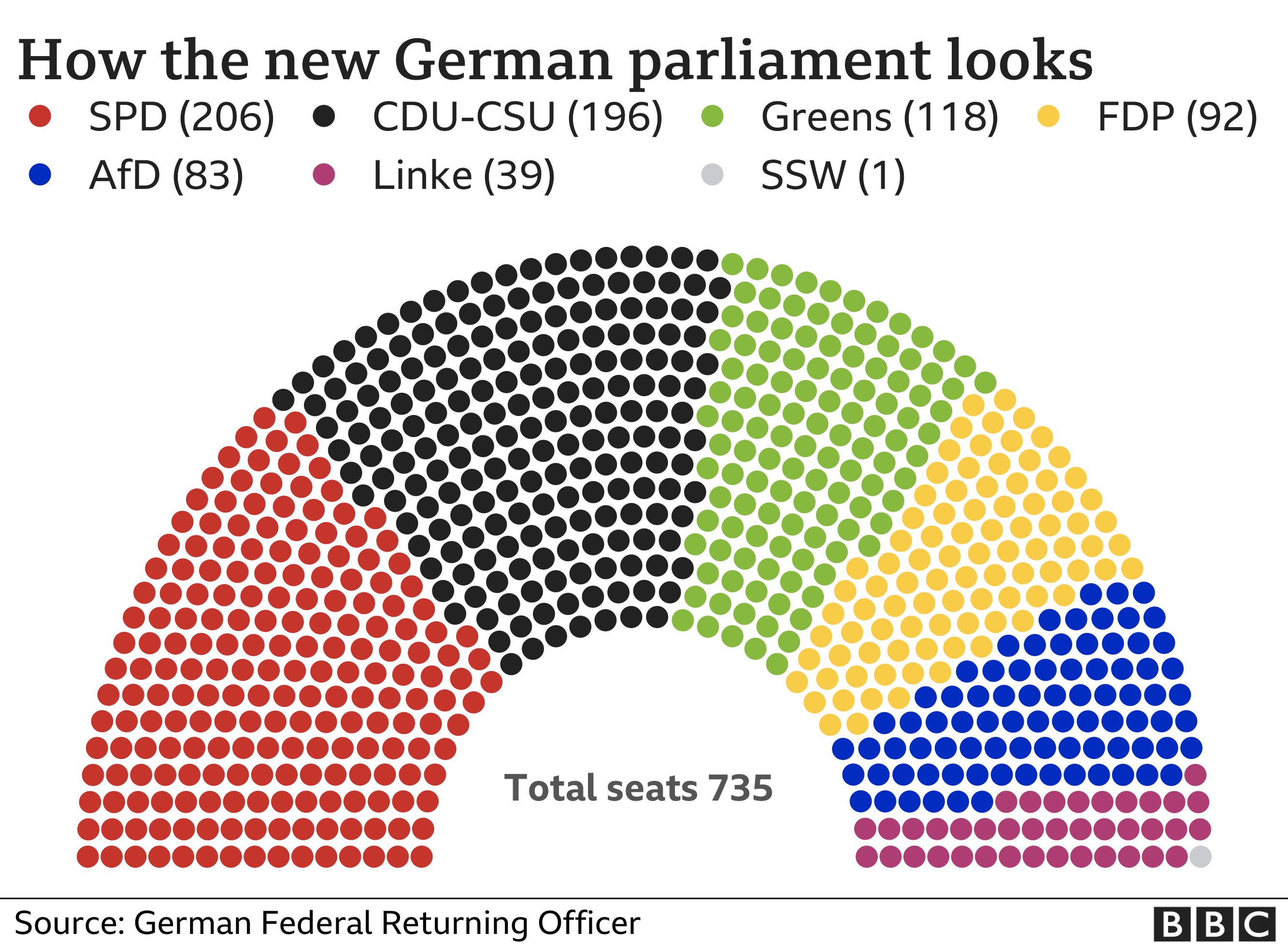
Germany voted in parliamentary elections yesterday, but still doesn't know who'll succeed Chancellor Merkel or what the next government will be like. And these questions are likely to go unanswered for a long time to come. But that shouldn't be worrying anybody, because Germany is used to this sort of thing. In fact, post-war Germany has always been run by coalition governments, and they've always been stable. Because the German political class have, well, class.
The final election results show that the German Social Democratic Party (GSDP) has won 25.7% of the vote, giving it a minimal lead over Merkel's Christian Democratic Union (CDU) and their Bavarian partner, the Christian Social Union (CSU), which received 24.1%. This sort of photo finish leaves Social Democrat Chancellor candidates Olaf Scholz and Conservative candidate Armin Laschet in a deadlock in the battle for Merkel's spot. And the only thing that's certain is that lengthy and complex negotiations are at hand, and a lot of effort will be required to form a government. And this government is likely to include three parties (at least).
Some'd say the risk is that Germany could be gripped by semi-paralysis, as it was after the last Bundestag elections in 2017, when it took 6 months for Merkel to form her fourth and final government.
In many ways, the Social Democrats are the clear winner in the election. They not only won the most votes but also significantly improved their performance after having hit the bottom in 2017 when they got the vote of only one in five Germans. For a party that for months was nailed to a 15% support in pre-election polls and lagged behind not only the CDU/CSU but also the Greens, this is no doubt a remarkable comeback.
The situation with the conservatives is exactly on the opposite extreme. Led by the unpopular and blunder-prone Armin Lashet, the CDU/CSU has recorded its worst election result in history and a 9% drop from 2017. However, Lashet insists he has a mandate to form a government. "[In Germany], the parties that come out first do not always nominate the chancellor," he said on election night. And he may've had a point in different circumstances.
In fact, the results mean that neither the GSDP nor the CDU/CSU will have a major say in who the next German chancellor will be. If a repetition of the current "grand coalition" between the Social Democrats and the Conservatives is ruled out of the options for forming a government, the Greens, who've now won 14.8% of the vote, and the Party of Free Democrats (PSD) with 12.8% will have the say in who will rule Germany from now on.
The two most likely coalitions that would have a majority in the Bundestag are the so-called Jamaica (CDU/CSU, Greens and Liberals) and Traffic Light (GSDP, Greens and Liberals). Thus, for the first time, the two smaller parties hold all the trump cards. Now all eyes are on the Greens and the PSD - they are the ones who will decide everything. The two parties are now in a position to choose which majority they prefer - whether with the Social Democrats or the CDU/CSU.
Forming a coalition of 3 parties will be a difficult threeway dance. PSD leader Christian Lindner, who opposes raising taxes and any changes to the rules of a balanced budget (the so-called "black zero"), does not hide that he sees the CDU/CSU as a natural partner. On the other hand, the GSDP and the Greens, which overlap in their promises to raise taxes and spend millions of euros on new investment, are also recognized as an ideal combination.
Given the major compromises that will have to be made for the likely future tripartite coalition, its formation by the end of the year seems questionable. And there is already speculation that the long-awaited end of the Merkel era could be postponed until 2022.
And that still won't hurt Germany economically and geopolitically, unless this thing gets protracted way too long. Which doesn't seem very likely at this point, as most players have already indicated that they'll maintain a constructive approach to the upcoming negotiations, and focus on the issues and policies rather than petty partisanship. It's noteworthy that a coalition can only be effectively formed once an agreement between all participants has been signed in written, clearly stipulating specific future policies and ways to achieve them. And that's something that maybe many fellow democracies could learn from Germany.